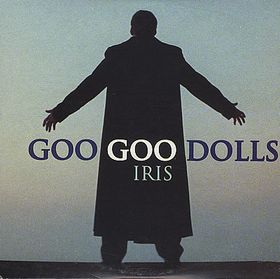Related Research Articles

Whitney Houston is the debut studio album by American singer Whitney Houston. It was released on February 14, 1985, by Arista Records. The album initially had a slow commercial response, but began getting more popular in mid-1985. It eventually topped the Billboard 200 for 14 weeks in 1986, generating three number-one singles—"Saving All My Love for You", "How Will I Know" and "Greatest Love of All"—on the Billboard Hot 100, which made it both the first debut album and the first album by a solo female artist to produce three number-one singles.
The Billboard charts tabulate the relative weekly popularity of songs and albums in the United States and elsewhere. The results are published in Billboard magazine. Billboard biz, the online extension of the Billboard charts, provides additional weekly charts, as well as year-end charts. The two most important charts are the Billboard Hot 100 for songs and Billboard 200 for albums, and other charts may be dedicated to a specific genre such as R&B, country, or rock, or they may cover all genres. The charts can be ranked according to sales, streams, or airplay, and for main song charts such as the Hot 100 song chart, all three data are used to compile the charts. For the Billboard 200 album chart, streams and track sales are included in addition to album sales.

"Iris" is a song by the American alternative rock band Goo Goo Dolls. Written for the soundtrack of the 1998 film City of Angels, it was included on the sixth Goo Goo Dolls album, Dizzy Up the Girl, and released as a single on April 1, 1998.

The Bodyguard: Original Soundtrack Album is a soundtrack album from the film of the same name, released on November 17, 1992, by Arista Records. The album's first side features songs recorded by American singer Whitney Houston, who starred in the film, while side two features the work of various artists. Houston and Clive Davis were co-executive producers of the record.

Thalía is the eighth studio album and second eponymous album by Mexican singer Thalía, released on 21 May 2002, by EMI Latin. The follow-up to her successful sixth studio album, Arrasando (2000), the album sees Thalía collaborating with previous producers Emilio Estéfan, Jr. and Cory Rooney, while working for the first time with Estéfano, Julio C. Reyes and Steve Morales. Thalía incorporates strong elements of pop rock, while also having Latin pop influences. Lyrically, the album touches on themes of self-empowerment and individuality. It also features two covers and a new version of an old Latin classic.

Paulina is the fifth studio album by Mexican singer Paulina Rubio. It was released on May 23, 2000 internationally by Universal Music México, being the first one with the label after departing from EMI México. Rubio worked with writers and producers such as Estéfano (mostly), Chris Rodríguez, Armando Manzanero, Juan Gabriel, Christian De Walden, and Richard Daniel Roman. The album explores a more variety sounds much different to the vein of her albums with EMI Music, and has an overall latin pop and dance-pop vibe, with influences from rock, ranchera, bolero, funk and house. Elaborating a "synthesis of the end of the millennium" theme for the album, Rubio reinvented her image.
Latin Pop Airplay is a record chart published on Billboard magazine and a subchart of the Latin Airplay chart. The chart focuses on Latin pop music, namely Spanish-language pop music. It was established by the magazine on October 8, 1994 as a subchart of the Hot Latin Songs chart until October 2012 when the Hot Latin Songs changed its methodology. The first number-one song on the chart was Mañana by Cristian Castro. This chart features only singles or tracks and like most Billboard charts, is based on airplay; the radio charts are compiled using information tracked by from Nielsen Broadcast Data Systems (BDS), which electronically monitors radio stations in more than 140 markets across the United States. The audience charts cross-reference BDS data with listener information compiled by the Arbitron ratings system to determine the approximate number of audience impressions made for plays in each daypart. With the issue dated August 15, 2020, Billboard revamped the chart to reflect overall airplay of Latin pop music on Latin radio stations. Instead of ranking songs being played on Latin-pop stations, rankings will be determined by the amount of airplay Latin-pop songs receive on stations that play Latin music regardless of genre. The current number-one song on the chart is "Amor" by Danny Ocean.
Top R&B/Hip-Hop Albums is a music chart published weekly by Billboard magazine that ranks R&B and hip hop albums based on sales in the United States and is compiled by Luminate. The chart debuted as Hot R&B LPs in the issue dated January 30, 1965, in an effort by the magazine to further expand into the field of rhythm and blues music. It then went through several name changes, being known as Soul LPs in the 1970s and Top Black Albums in the 1980s, before returning to the R&B identification in 1990 and affixing a hip hop designation in 1999 to reflect the latter's growing sales and relationship to R&B during the decade.

"I Need to Know" is a song by American singer Marc Anthony for his eponymous fourth studio album. It was released as the lead single from the album on August 16, 1999. Written and produced by Anthony and Cory Rooney, "I Need to Know" is a song about a man who longs to know how a woman feels about him. The song blends the musical styles of several genres, including R&B and Latin music; the instruments used include synthesized violin and piano sounds, timbales and congas. Anthony recorded a Spanish-language version of the song, translated by Angie Chirino and Robert Blades, titled "Dímelo".
Top Latin Albums is a record chart published by Billboard magazine and is labeled as the most important music chart for Spanish language, full-length albums in the American music market. Like all Billboard album charts, the chart is based on sales. Nielsen SoundScan compiles the sales data from merchants representing more than 90 percent of the U.S. music retail market. The sample includes sales at music stores, the music departments of electronics and department stores, direct-to-consumer transactions, and Internet sales of physical albums or digital downloads. A limited array of verifiable sales from concert venues is also tabulated. To rank on this chart, an album must have 51% or more of its content recorded in Spanish. Listings of Top Latin Albums are also shown on Telemundo's music page through a partnership between the two companies.

"Heaven" is the debut single of American rock band Los Lonely Boys. The song was written by brothers Henry, Jojo and Ringo Garza, who comprise the foundation of the band, and it appears on their multi-platinum self-titled album.
Regional Mexican Albums is a genre-specific record chart published weekly by Billboard magazine in the United States. The chart was established in June 1985 and originally listed the top twenty-five best-selling albums of mariachi, tejano, norteño, and grupero, all subgenres of regional Mexican music. The genre is considered by musicologists as "the biggest-selling Latin music genre in the United States", and represented the fastest-growing Latin genre in the United States after tejano music entered the mainstream market during its 1990s golden age.

"Causa y Efecto" is a song performed by Mexican singer Paulina Rubio. The song was recorded for her ninth studio album Gran City Pop, and was released as the lead single on March 26, 2009. Causa y Efecto became a hit reaching number 1 in the U.S. Billboard Hot Latin Songs and Hot Latin Airplays. Causa y Efecto was produced by Cachorro López and written by Mario Domm and Mónica Vélez. "Causa y Efecto" is Rubio's first number one single in the Billboard Hot Latin Songs since Ni Una Sola Palabra in 2006. "Causa y Efecto" was awarded "Song of the year pop/ballad" by ASCAP.

The year-end charts for the Hot Latin Songs chart are published in the last issue of Billboard magazine every year. Initially, the chart was based on information provided by Nielsen Broadcast Data Systems, which collected airplay information from Latin radio stations in the United States. On the week ending October 20, 2012, the methodology was changed to track the best-performing Spanish-language songs based on digital downloads, streaming activity, and airplay from all radio stations in the country. The Year-End charts represent aggregated numbers from the weekly charts that were compiled for each artist, song and record company.
Tropical Albums is a record chart published by Billboard magazine. Established in June 1985, the chart compiles information about the top-selling albums in genres like salsa, merengue, bachata, cumbia, and vallenato, which are frequently considered tropical music. The chart features only full-length albums and, like all Billboard album charts, is based on sales. The information is compiled by Nielsen SoundScan from a sample representing more than 90% of the U.S. music retail market, including not only music stores and music departments at electronics and department stores but also direct-to-consumer transactions and Internet sales. A limited number of verifiable sales at concert venues is also tabulated. Innovations by El Gran Combo de Puerto Rico was the first album to reach number-one in the chart on June 29, 1985. Up until May 21, 2005, reggaeton albums appeared on the chart. After the installation of the Latin Rhythm Albums chart, reggaeton titles could no longer appear on the Tropical Albums chart. By removing reggaeton albums from the Tropical Albums chart, it opened slots for re-entries and debuts. American bachata group Aventura claimed the top spot on the Tropical Albums chart, which marked the first time since the issue dated November 6, 2004 that a reggaeton album was not at the number-one spot. The current number-one album on the chart is Todavia Me Amas: Lo Mejor de Aventura by Aventura. by Romeo Santos.
The Year-End charts for the Regional Mexican Albums chart in the 1990s are published in the last issue of Billboard magazine every year. The chart was based on information provided by Nielsen Broadcast Data Systems, which collected a survey from music retail shops and one-stop sales in the United States until May 1991 when the methodology was changed to include point-of-sale data compiled from Nielsen SoundScan. The Year-End charts represent aggregated numbers from the weekly charts that were compiled for each artist, album and record company.
References
- General
- "Regional Mexican Albums". Billboard . Nielsen Business Media, Inc. Retrieved 2009-01-09.[ dead link ] For information about every week of this chart, follow this link; in the "refine your results" section select the chart date and all positions for the week selected will appear on screen.
- Specific
- ↑ "Billboard Methodology". Billboard. Nielsen Business Media, Inc. Archived from the original on 2008-07-31. Retrieved 2009-01-10.
- ↑ "Billboard's Genre Album Charts Will Now Incorporate Streams & Track Sales". Billboard. January 26, 2017. Archived from the original on April 23, 2018. Retrieved August 24, 2020.
- ↑ "Latin Pop Albums – The Week of June 29, 1985". Billboard. June 29, 1985. Archived from the original on June 20, 2019. Retrieved October 22, 2023.
- ↑ "Top Latin Pop Albums of the week". Billboard. June 15, 2024. Retrieved June 15, 2024.
- ↑ "Latin Pop" (PDF). Billboard . 1 November 1994. p. 242. ISSN 0006-2510 – via World Radio History.
- ↑ "Decade-End Charts". Billboard. Prometheus Global Media. Archived from the original on 14 December 2009. Retrieved 25 May 2013.
- ↑ Billboard Year-end Charts (1986). 1986-12-27. Retrieved 2010-12-22.
- ↑ Billboard Year-end Charts (1987). 1987-12-26. Retrieved 2010-12-22.
- ↑ "No. 1 Awards – Top Pop Latin Albums". Billboard. 1988-12-24. p. Y-38.
- ↑ "1989: The Yearn in Music – Top Pop Latin Albums". Billboard. 1989-12-23. p. Y-56.
- ↑ "1990: The Year in Music – Top Pop Latin Albums". Billboard. 1990-12-22. p. Y-50.
- ↑ "1991: The Year in Music – Top Pop Latin Albums". Billboard. Vol. 130, no. 51. 1991-12-21. p. YE-42.
- ↑ "1992: The Year in Music – Top Pop Latin Albums". Billboard. 1992-12-26. p. YE-50.
- ↑ "1993: The Year in Music – Top Pop Latin Albums". Billboard. 1993-12-26. p. YE-54.
- ↑ "Billboard Year-end Charts (1994)". Rock On The Net. 1994-12-25. Retrieved 2009-02-23.
- ↑ "Billboard Year-end Charts (1995)". Rock On The Net. 1995-12-25. Retrieved 2009-02-23.
- ↑ "Billboard Year-end Charts (1997)". Rock On The Net. 1997-12-25. Retrieved 2009-02-23.
- ↑ "Billboard Year-end Charts (1998)". Rock On The Net. 1998-12-25. Retrieved 2009-02-23.
- ↑ "Billboard Year-end Charts (1999)". Rock On The Net. 1999-12-25. Retrieved 2009-02-23.
- ↑ "Billboard Year-end Charts (2000)". Rock On The Net. 2000-12-25. Retrieved 2009-02-23.
- ↑ "Pro Posts".
- ↑ "Pro Posts". Archived from the original on 2012-07-24. Retrieved 2012-02-25.
- ↑ "Pro Posts". Archived from the original on 2012-07-20. Retrieved 2012-02-25.
- ↑ "Pro Posts".
- ↑ "Billboard biz". billboard.biz.
- ↑ "Top Latin Pop Albums - Year-End". Billboard . Retrieved August 8, 2019.
- ↑ "Top Latin Pop Albums - Year-End". Billboard . Retrieved August 8, 2019.
- ↑ "Top Latin Pop Albums - Year-End". Billboard . Retrieved August 8, 2019.
- ↑ "Top Latin Pop Albums - Year-End". Billboard . Retrieved August 8, 2019.
- ↑ "Top Latin Pop Albums - Year-End". Billboard . Retrieved August 8, 2019.
- ↑ "Top Latin Pop Albums - Year-End". Billboard . Retrieved August 8, 2019.
- ↑ "Top Latin Pop Albums - Year-End". Billboard . Retrieved August 8, 2019.
- ↑ "Top Latin Pop Albums - Year-End". Billboard . Retrieved August 8, 2019.
- ↑ "Top Latin Pop Albums - Year-End". Billboard . Retrieved August 8, 2019.
- ↑ "Top Latin Pop Albums - Year-End". Billboard . Retrieved August 8, 2019.
- ↑ "Top Latin Pop Albums - Year-End". Billboard . Retrieved August 8, 2019.
- ↑ "Top Latin Pop Albums - Year-End". Billboard . Retrieved August 8, 2019.
- ↑ "Top Latin Pop Albums - Year-End". Billboard . Retrieved May 3, 2022.
- ↑ "Top Latin Pop Albums - Year-End". Billboard . Retrieved December 20, 2022.
- ↑ "Top Latin Pop Albums - Year-End". Billboard . Retrieved December 20, 2022.
- ↑ "Top Latin Pop Albums - Year-End". Billboard . Retrieved December 20, 2022.
- ↑ "Top Latin Pop Albums - Year-End". Billboard . Retrieved December 20, 2022.
- ↑ "Top Latin Pop Albums - Year-End". Billboard . Retrieved February 21, 2024.